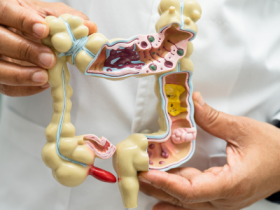Abstract
Menopause is a natural phase marked by the permanent cessation of menstrual cycles, occurring when the production of reproductive hormones from the ovaries stops for at least 12 consecutive months. Studies have suggested a potential connection between menopause and a heightened risk of developing Alzheimer’s disease (AD), underscoring the significant role of reduced estrogen levels in the development of AD. Estrogen plays a crucial role in brain metabolism, influencing energy metabolism, synaptic plasticity, and cognitive functions. The cognitive benefits associated with hormone replacement therapy (HRT) are believed to be linked to estrogen’s neuroprotective effects, either through direct action on the brain or indirectly by improving cardiovascular health. Extensive literature supports the positive impact of estrogen on brain cells. While the physiological effects of estrogen on the brain have not been consistently replicated in clinical trials, further research is crucial to provide more definitive recommendations to menopausal patients regarding the influence of HRT on AD. This review aims to comprehensively explore the interplay between menopause and AD, as well as the potential of HRT to mitigate cognitive decline in post-menopausal individuals.
Keywords: hormone replacement therapy, menopause management, cognitive decline, alzheimer’s disease, menopause
Introduction and background
Menopause is a normal condition involving the permanent end of menstrual cycles due to the cessation of the production of reproductive hormones from the ovaries for at least 12 consecutive months [1]. Perimenopause is an ill-defined period that surrounds the final years of a woman’s reproductive life. It begins with the first onset of menstrual irregularity and ends after one year of amenorrhea has occurred. There are two stages to this menopausal transition: the early transition, where cycles are mostly regular, with relatively few interruptions, and the late transition, where amenorrhea becomes more prolonged and lasts for at least 60 days, up to the final menstrual period [2,3].
Most women experience vasomotor symptoms, but menopause can affect many different organ systems [1]. The decline of estradiol (E2) typical of menopause has been associated with changes in the brain, including cognitive changes, sleep effects, and mood effects [4]. E2 interacts with the cholinergic, dopaminergic, and mitochondrial functions, has effects on brain volumes and neuronal connectivity, and has shown interactions in neuropsychiatric disorders, including Alzheimer’s disease (AD), schizophrenia, and depression [5].
AD is a progressive neurodegenerative disorder that accounts for more than half of all dementia cases in the elderly [6]. It remains the fifth-leading cause of death among Americans aged 65 years and older [7]. Women comprise a disproportional two-thirds of all AD cases. Evidence suggests a link between menopause and a higher risk of developing AD, highlighting the critical role of decreased estrogen levels in AD pathogenesis [6]. Elucidating this connection is crucial for better understanding and developing targeted therapeutic interventions, such as hormone replacement therapy (HRT), to mitigate AD risk and for devising lifestyle, dietary, and other guidelines that help maintain cognitive health throughout the menopausal transition and beyond [8].
The present review is organized to explore the relationship between menopause and AD comprehensively. Initially, we examine the stages of menopause and their associated hormonal changes. Then, we review the pathophysiological mechanisms that might link menopause to AD. Further sections delve into brain imaging modalities and biomarkers pertinent to AD in the menopausal context, the impact of HRT on cognitive function and AD prevention, and lifestyle interventions that may diminish AD risk. Concluding sections will illuminate future research directions and underscore existing gaps in the current knowledge base.







Leave a Reply